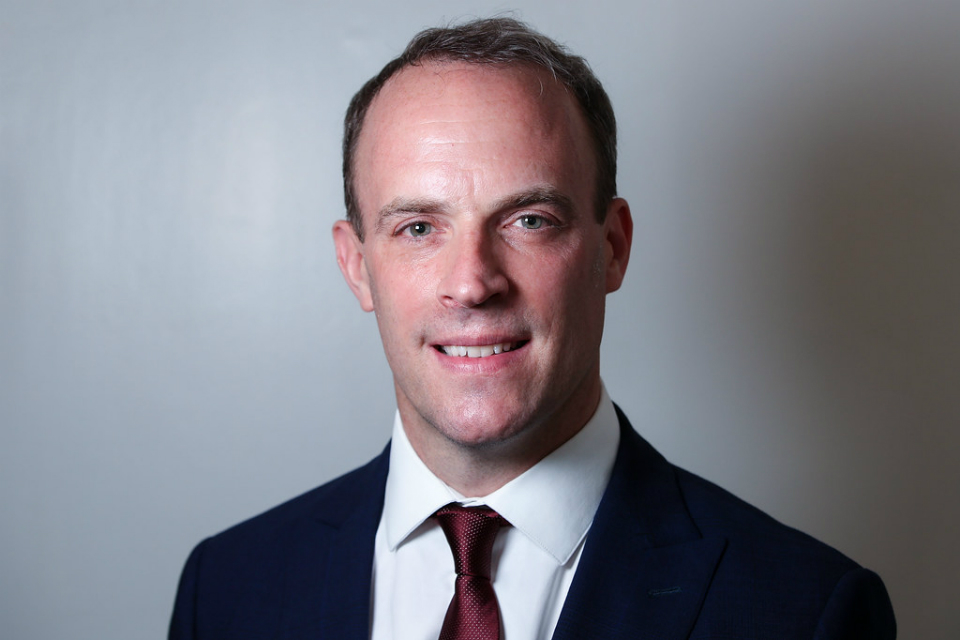Targeted aid remains a priority: article by the Foreign Secretary
Writing in the Financial Times, Dominic Raab highlights how Britain will fund the fight against disease and climate change and help get girls into school.

Due to the seismic impact of the pandemic, the UK is facing the worst economic contraction in more than 300 years and a budget deficit double that at the peak of the financial crisis.
This contraction, combined with the urgent need to protect the economy, help businesses and workers, support the NHS and invest in essential infrastructure, has created a hole in the UK public finances of almost £400bn. There are many priorities competing for scarce resources, and we are determined to avoid further borrowing that could harm our economic recovery.
We have taken the tough — but necessary and temporary — decision to reduce the aid budget from 0.7 per cent of gross national income to 0.5 per cent. It is a difficult decision. We take it with regret, and we will return to 0.7 per cent as soon as the fiscal situation allows.
Next year, the UK will still have an aid budget of £10bn — the second most generous G7 nation behind Germany as a share of GNI — based on 2019 official data — and that’s before many other countries have reassessed their budgets in light of Covid-19.
UK government spending also remains high in historic terms. As Labour prime minister, Harold Wilson originally set the 0.7 per cent target in 1974. In the 46 years since, Labour never once hit that 0.7 share, and only hit 0.5 in two of its 18 full years in office.
We will focus our aid work on our strategic priorities in the world’s fight against poverty — focusing on the areas that matter most to a globally focused Britain and where we can have the greatest life-changing impact.
We will prioritise helping poor countries tackle climate change. As we prepare to host the UN Climate Change Conference in Glasgow next November we are uniquely well placed to lead on this. Based on our example at home and leveraging our aid spend abroad, we will galvanise global action so leaders bring forward ambitious, game-changing commitments at COP26.
Responding to Covid-19 and wider public health concerns will remain priorities, as we invest to tackle Aids, tuberculosis and malaria. The UK helped persuade the World Bank to announce additional funding last month of up to $12bn to get coronavirus vaccines to developing countries. That remains a top priority.
We will champion girls’ education, focusing aid on meeting our global targets of getting 40m girls into education, and 20m more girls reading by the age of 10.
Reinforcing Britain’s role as a force for good, we will foster open societies and conflict resolution, increasing UK partnerships in science and technology, alleviating humanitarian crises and promoting global trade and investment.
Our increased investment in security and defence spending will also allow us to better support war-torn nations and vulnerable governments — from peacekeeping to support for reinforcing resilience against cyber attacks.
Finally, given the tighter financial envelope, we will double down on the effectiveness of our aid. The Foreign, Commonwealth and Development Office will assume oversight and control of the vast majority of government aid spending to ensure it is focused for maximum impact.
We will change restrictive and outdated spending limits that forced the old Department for International Development to outsource work to expensive consultants, and instead build greater in-house project management expertise. And our spending will remain in line with the OECD rules that set criteria for allowable spending.
In 2021, as the world begins to recover from the pandemic, the UK will step up to the global plate, taking on the presidency of the G7 and hosting COP26. With a sharper strategic focus, the UK will continue to lead as a force for good in the world — even in tough economic times.
Media enquiries
Email newsdesk@fcdo.gov.uk
Telephone 020 7008 3100
Email the FCDO Newsdesk (monitored 24 hours a day) in the first instance, and we will respond as soon as possible.